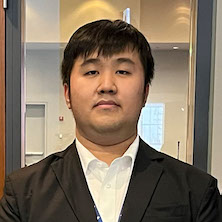|
March 6th, 12pm-1pm
Bridging Public Health with Clinical Decisions from a Data Centric PerspectiveJiaming Cui
Advisor: Prof. B. Aditya Prakash
|
 |
ABSTRACT
Public health and clinical decisions are intertwined. Public health crises place a high burden on healthcare facilities, forcing them to make decisions such as maintaining quality vs. treating more people. Meanwhile, sub-optimal clinical decisions also cause downstream effects on communities, like discharging patients too early might increase disease spread. My work brings a data-centric perspective to bridge clinical decisions within the context of infectious diseases for public health. My work addresses multiple challenges arising from effectively utilizing rich clinical datasets, and issues stemming from the complexity of disease spread dynamics in healthcare facilities. This talk will cover methods I have developed to address these challenges with better-designed models to optimize disease surveillance and control policy, and new techniques for end-to-end learning with mechanistic epidemiological models. I will conclude by discussing new challenges and opportunities in infectious diseases and pandemic response for computer scientists, epidemiologists, and computational biologists.
BIO
Jiaming Cui is a PhD candidate in the College of Computing at Georgia Tech, advised by Prof. B. Aditya Prakash. His research aims to bridge public health with clinical decisions using epidemiological modeling and machine learning (ML). He has published in leading science journals and top CS venues such as PNAS, Scientific Reports, NeurIPS, ICML, AAAI, and has organized workshops at leading conferences like KDD. He has closely collaborated with clinicians, and his work has been applied in multiple healthcare facilities. His work has also significantly contributed to pandemic prediction and prevention in the past several years, including winning global data science competitions, helping decision-making in healthcare facilities, and participating in the CDC's healthcare-associated infections team.
